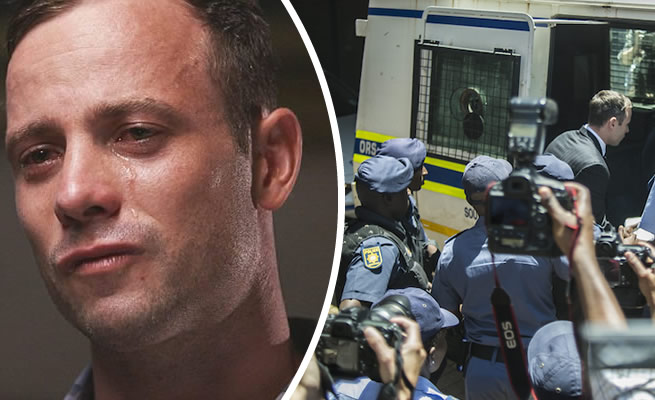Convicted murderer Oscar Pistorius is scheduled to be released from prison on Friday, and the Department of Correctional Services has reaffirmed that he will be subject to standard parole conditions. These conditions include restrictions on consuming alcohol and engaging in media interviews.
Pistorius, a former Paralympian, was found guilty of murdering his girlfriend, Reeva Steenkamp, on Valentine's Day in 2013. He shot her through a closed toilet door at his residence in Pretoria East. The Supreme Court of Appeal overturned a culpable homicide conviction by the Gauteng High Court in Pretoria and sentenced him to 13 years and five months in prison.
After serving eight years in prison, the Constitutional Court confirmed that Pistorius had completed half of his sentence by March 21, 2022, making him eligible for parole. In November 2022, the correctional services conducted a parole hearing, and a parole board reviewed Pistorius' profile and other relevant information for consideration.
Being classified as a first-time offender with a positive support system, Pistorius' parole placement aligns with Section 73 of the Correctional Services Act. The department stated that parole placement is part of the rehabilitation process and aims to correct offending behavior and facilitate reintegration through community corrections.
According to the correctional services spokesperson, Singabakho Nxumalo, the decision to release Pistorius on parole on January 5 remains valid and will be enforced. Pistorius will enter the community corrections system and be monitored until his sentence expires in 2029.
Nxumalo emphasized that Pistorius will not receive special treatment due to his public profile. The department will not disclose transportation plans or the time of release to safeguard Pistorius and other stakeholders from potential security threats.
As with other parolees, Pistorius will be subject to general parole conditions. These conditions include adhering to specific curfew hours, abstaining from alcohol and prohibited substances, and mandatory participation in identified programs as determined by the Community Supervision and Parole Board (CSPB). Additionally, like all parolees, Pistorius is prohibited from conducting media interviews.
The Department of Correctional Services follows a victim-centered criminal justice system, and therefore, inmates and parolees are not publicly displayed. While media outlets may be allowed to carry out their duties near correctional facilities, they will not have access to Pistorius or be able to capture visuals of him.
Newly placed parolees, including Pistorius, require support systems to help them readjust to everyday life, and the responsibility for providing such support lies with their caregivers (usually family members) who collaborate with DCS monitoring officials.











